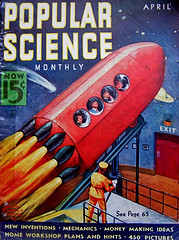You probably already have plenty of data, Big or otherwise
I really wanted to title this post - 'There is almost certainly too much crap on your iPhone', because that is what I was actually thinking about before writing this post. This was in recollection of a few wasted moments the other day when I simply could not find the particular app on the phone that I was looking for. But then a blog post about my frustration with my inability to properly operate a phone seemed the most dire kind of post - self-indulgent, inconsequential, and worst of all - boring.
But this silly little example, the fact that I've put too many apps on my phone, combined with a lack of organization or semblance of order, with a sprinkle of 'I had a BlackBerry for so long, I am still trying to figure out how to use this thing', and I've ended up (at times) squandering the opportunities that having access to an incredible resource and range of applications should represent. Remember how your phone once looked?
Remember how your phone once looked?
The best project manager I ever had, when trying to run a year-long, 50-person plus, and technically complex systems integration and implementation project had a general rule of thumb he followed to help manage what threatened to be an impossibly growing 'Issues list.' His rule? No project team member was allowed, after the initial requirements discovery period was complete, to add a new issue to the list, unless he or she could prove an existing issue was closed, or was no longer an issue after all.
This rule, and the discipline it instilled in the process and the team, served to force the team members to think really critically when new potential issues arose, and kept us focused on making consistent progress against what issues had already been raised. It was not a perfect system, and the project manager did make an occasional exception to this rule when it was essential, but it basically worked.
Why bring up an old project manager's quirky practice in a post that seems to be about my inability to use my iPhone and with a title vaguely alluding to one of 2013's 'You might already be sick of it' terms, Big Data?
Well, because for the same reason you and I have too many apps on our phones and belong to too many different social networks and sites, and spend way too much time checking for likes, follows, and retweets - Big Data at work threatens to create even more complexity, confusion, and chaos if we are not careful.
So as 2013 starts here is my first recommendation for how to approach Big Data for HR - start by figuring out just what data you already have, have been routinely collecting either by design or as a by-product of another process, and take some time to consider what kinds of insight and value could be gained by simply asking some simple questions about this information.
My guess is just like you already have 'enough' apps on your iPhone, (or at least have a few you can happily set free), you probably have plenty of internal data to commence your own version of a Big Data project without launching some kind of new initiative to collect even more data.
So that's my advice. Take an inventory. Ask around to see what data folks are collecting on their own spreadsheets. Talk to the creepy guy in IT once in a while. See what additional information is locked up by your Payroll and Benefits providers. Start there.
And after that, and only after that, start looking for more data.
Now, I need to run I have a few more screens of Apps to delete.
Have a great week all!

 Steve
Steve

